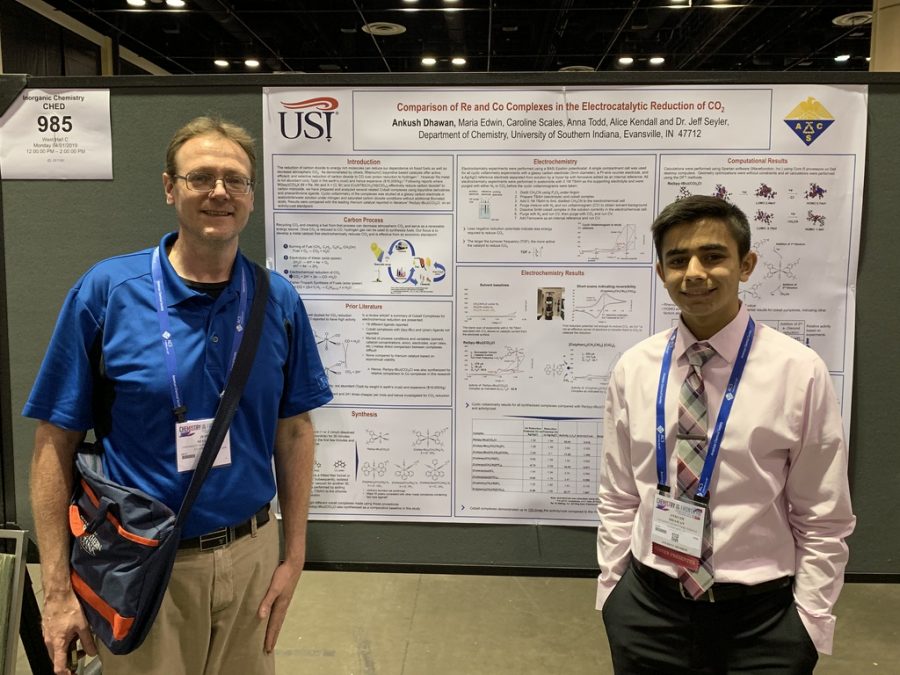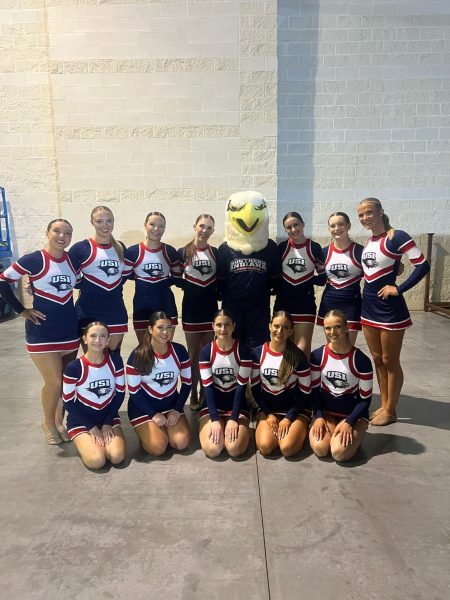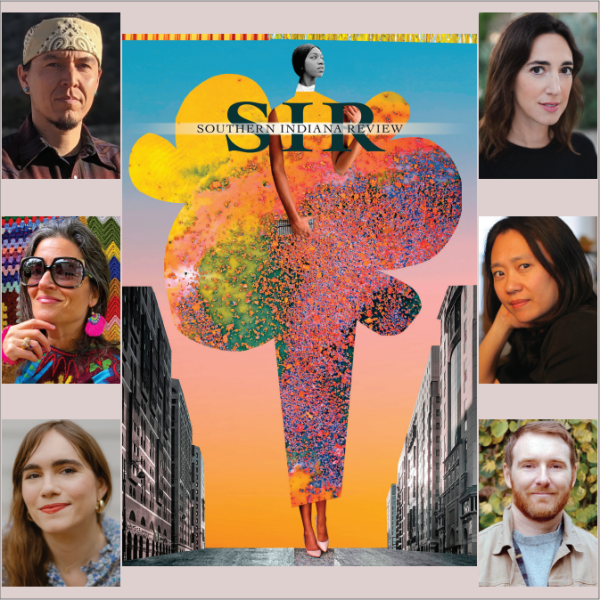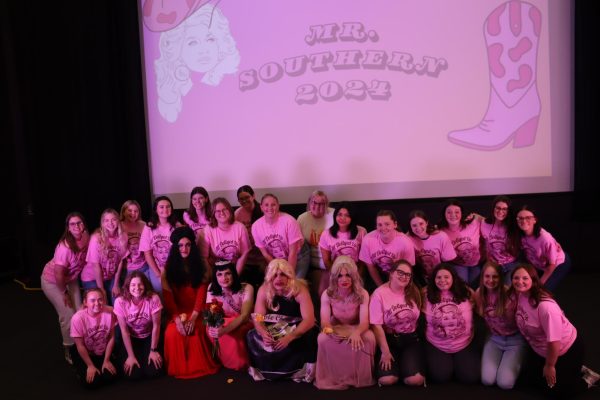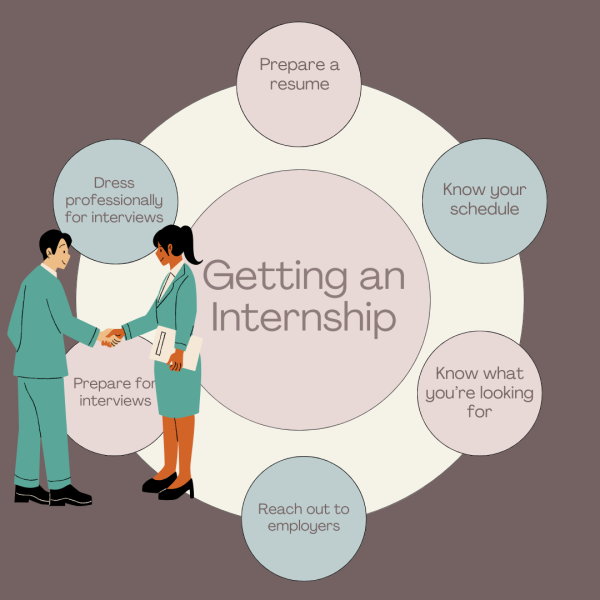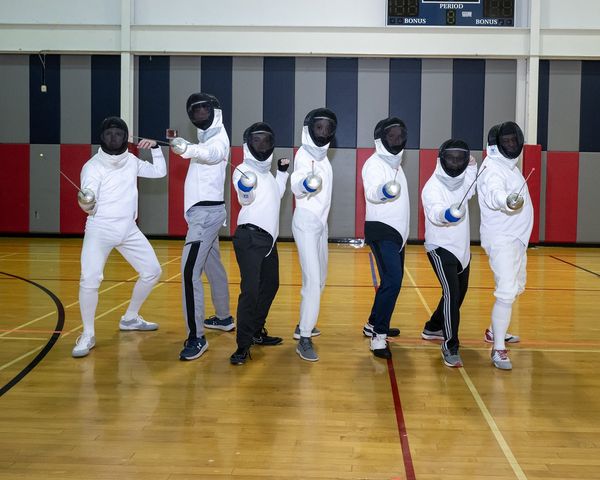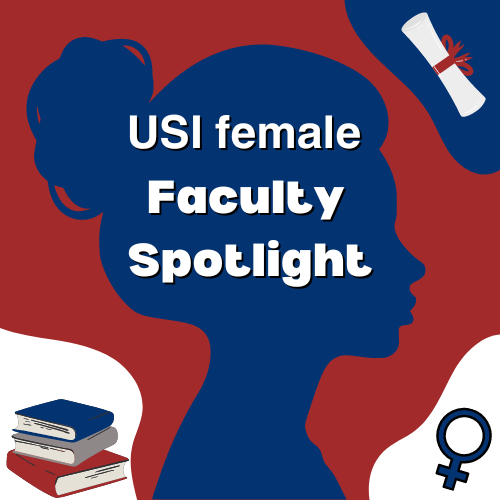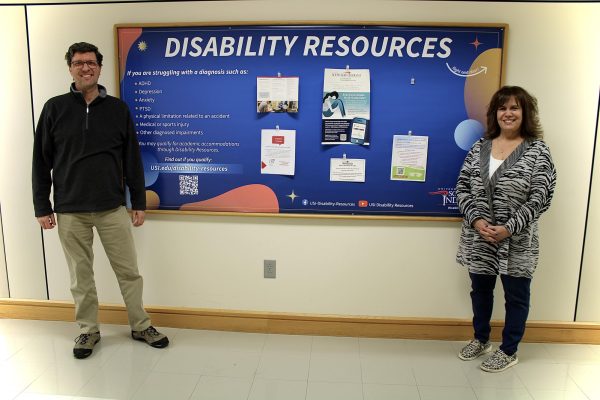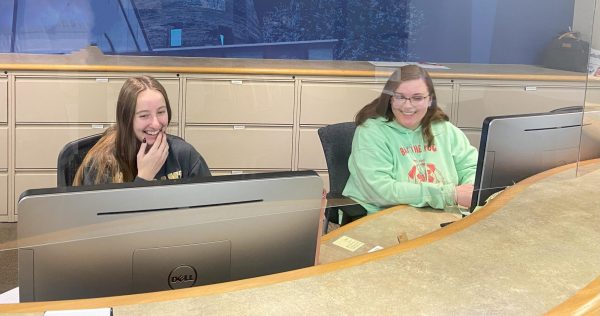Professor mentors student in water safety research
Photo courtesy of Ankush Dhawan
Signature School student Ankush Dhawan (right) was mentored by Jeffery Seyler (left), a professor of chemistry.
Jeffery Seyler has been mentoring both high school and college students since he came to USI in 1993.
Seyler, a professor of chemistry, recently mentored high school student Ankush Dhawan, who was recently named a top 300 scholar in the 79th Regeneron Science Talent Search for his project, “An Improved Method for Trace Level Arsenic Quantification in Water“ which focused on a faster and cheaper way of detecting arsenic in drinking water. Dhawan would go on to be selected as one of the top 40 finalists and he will travel to Washington, D.C. to compete with the other finalists for more than $1.8 million in awards.
Arsenic is a common water pollutant. It’s very toxic in its inorganic form and has a range of side effects. Some of the minor side effects of arsenic poisoning are abdominal pain, vomiting, and diarrhea. Numbness, tingling of the extremities and even death can follow the acute symptoms.
The Regeneron Science Talent Search is the nation’s oldest and most prestigious science and math competition for high schoolers according to Allie Stifel, Director of Regeneron Science Talent Search. It recognizes and empowers promising young scientists in America who are finding solutions for the world’s most urgent problems.
Dhawan is a junior at Signature School in downtown Evansville and focuses on water research and other environmental issues. He chose to focus on these problems after visiting the Ganges River in India in sixth grade. Dhawan was expecting clear, pristine water however he found that the river was heavily polluted with trash and murky brown water.
“I was appalled at what I saw and I wanted to help solve some environmental issues because I saw just how great they are,” Dhawan said.
Dhawan worked on his project for a full year. The project had three main stages which were three different approaches he used. The first approach was to develop a test method that would work similarly to a pH paper where you dip it in water and it would react to the arsenic levels. That approach didn’t work because he found the levels he wanted to measure were too small to monitor.
Dhawan contacted Seyler when he was coming up with his second and third methods because he didn’t have the necessary equipment to test his theories.
Seyler said Dhawan approached him with his ideas and began working with him at the university. Seyler allowed Dhawan to use resources in the chemistry department to further his research and helped mentor the high school student.
Dhawan contacted Seyler because he had worked with him on previous occasions. He has been working under the mentorship of Seyler for about four years. Dhawan initially reached out to Seyler because he heard of the awards Seyler won for his community involvement.
“I first made contact with him in my eighth-grade year when I went to perform a research project in water purification and so that connection just stemmed throughout these four years,” Dhawan said. “He’s always been one of the people great in outreach work. I thought he would be a good person to make contact with and it was a really great experience.”
Seyler’s most recent award is the M. Edward Jones Engagement Award which was presented to him in 2018 by USI’s Outreach and Engagement department. Seyler has provided numerous hands-on chemistry demonstrations for elementary, middle and high school students.
There are also many opportunities to work with Seyler. He goes around to different schools to do demonstrations and also mentors a lot of students.
Seyler has mentored many high school and college students throughout his career and encourages students to reach out. He said if high school or undergraduate students want to reach out to him they can just contact him via email or call his office.
“The interaction with the students is the best part and as for mentoring, you get that one-on-one interaction and that is what really motivates us,” Seyler said.
Seyler has been teaching for twenty-six years. He said what keeps him going is the pleasure of teaching and his own undergraduate experience that inspired him to become a professor.
“The greatest pleasure comes from the students who have the ‘a-ha’ moment, you know, ‘I get it,'” Seyler said. “When you see the students catch on and grasp things, it’s a good sensation. Anytime there were any trials that come up you just work through them and keep going.”

